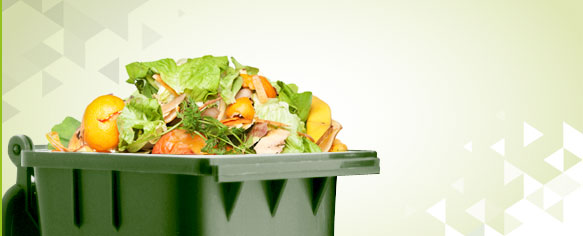By Nina Huang
Northwest Asian Weekly

What can the citizens of Seattle do to make the earth a better place? Start composting.
The most important benefits of composting include cost savings, increased resources, and improved climates.
Pat Kaufman, commercial recycling and composting specialist at Seattle Public Utilities (SPU), explained, “Our food waste can be made into compost, which is full of nutrients and natural fertilizers that are beneficial to plants on our farms and in our parks and gardens.”
“We are able to make this compost in a local facility, which removes the need to haul it out of state and provides jobs,” said Ivonne Rivera Martinez, a community engagement adviser at SPU.
“There is a huge environmental benefit to reducing how much goes to the landfill. Also, to your pocket, composting costs about a third less than garbage service,” Martinez said.
In addition, composting has a huge impact on the greater society, such as climate change.
“When food waste is buried in a landfill, it rots and breaks down, creating methane gas — dangerous to a healthy atmosphere and contributes to the effects of climate change,” Kaufman said.
Kaufman said the average cost to compost food waste is 33 percent less than discarding that same waste as garbage.
Martinez added that composting allows people to use less, which is great for the earth.
Sometimes it can be tough for people to change their lifestyle habits, but not only does composting help make the environment a better place, there are also incentives.
Kaufman said that local businesses can join the “Get on the Map” program to become recognized for pursuing resource conservation oriented practices.
And if you’re a building owner with more than five units, you could collect a one-time $100 credit to your utilities bill if you sign up to spread awareness about waste collection.
In addition, businesses should also compost to avoid unnecessary fees.
“In Seattle, it is required that food waste not be in the garbage. Compliance inspectors may find that a business is discarding food waste in their trash. After three notifications, the business is subject to a $50 fee for non-compliance,” Kaufman explained.
Fees apply only to businesses, not individual households.
ID involvement
The city wants to focus on the International District (ID) to ensure local businesses are educated and compliant with the city’s composting laws.
Martinez said, “What makes the ID unique is the tight knit community that resides there, SPU sees this as an advantage in getting folks to participate in composting.”
Martinez said that Seattle is a leader in composting. “As a city in 2015, we recycled 58 percent of the waste generated. It was 38.2 percent back in 2003.”
“For some cities, that would be a stretch goal at best. Seattle is proud of the efforts made by customers to divert waste and our stretch goal is to reach 70 percent diversion by 2022,” Kaufman added.
According to Veronica Fincher, SPU’s waste prevention program manager, in 2015, SPU partnered with the Chinatown-International District Business Improvement Area (CIDBIA) to provide technical assistance to about 50 restaurants and grocery stores in the ID.
“Of those 50, 76 percent weren’t composting when the CIDBIA first approached them, but the compliance rate will be higher now since the CIDBIA provided assistance to those businesses,” she added.
What’s compostable?
Kaufman said plastic is the number one contaminant to the compost program.
“Whether it be a plastic coated paper plate or plastic coated cup — often paper packaging for food and beverages aren’t allowed for composting,” he said.
Martinez adds that food thrown away in plastic bags are also very common, and disrupts the composting process because plastic doesn’t break down the same way as other compostables.
To avoid this mistake, many retailers and manufacturers sell city-approved compostable bags made of plant-based materials that break down in the composting process.
When people do compost, they’re good about composting food preparation scraps, such as fruits and vegetables found in the kitchen. But they often miss the food leftovers from plates and take-out food packaging.
“Extra effort and a better understanding of ‘what is compostable’ is needed,” Kaufman said.
Challenges
Education and awareness is important in creating a better understanding of the composting process. Kaufman said that the city continues to perform site visits to assist people with their collection efforts, to inform them about requirements, often with language assistance due to the language barriers.
Other common barriers identified by Fincher include the perception that the costs will increase, difficulty communicating with the solid waste providers, and resistance from building property owners and managers.
She said SPU works with trained contractors to provide in-language technical assistance to food service businesses in Seattle. SPU also has information and signage available in multiple languages.
Kaufman explained that there’s still about a third of our waste going to the landfill that is compostable. The cost to the customers can be significant when considering annual costs for garbage service. In fact, there is still as much recyclable material found in the garbage as well.
“Everyone can save more and help stabilize rates by diverting additional compostables and recyclables,” he said.
To request materials or in-language assistance about composting, contact SPU’s Green Business Program at (206) 343-8505 or greenbusiness@seattle.gov.
Nina Huang can be reached at info@nwasianweekly.com.



